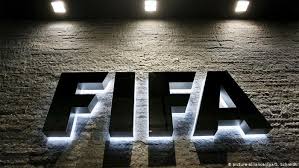December 12 – FIFA President Gianni Infantino said there is “no hiding place” for those who abuse players and officials online, after FIFA and FIFPRO’s collaborative report on the Social Media Protection Service (SMPS) at the FIFA Women’s World Cup 2023 revealed it succeeded in protecting almost 700 players and coaches from online abuse during the tournament.
An analysis of 5.1 million posts and comments in 35 languages was conducted for the report.
The SMPS safeguarded 697 players and coaches through 2,111 active accounts across various social platforms including Facebook, Instagram, TikTok, X, and YouTube. Additionally, 239 active accounts held by 29 match officials and the 32 participating teams were included in this service.
The analysis revealed concerning statistics:
– 1 in 5 players (152 individuals) at the FIFA Women’s World Cup 2023 encountered targeted discriminatory, abusive, or threatening messages.
– Almost 50% of the detected verified abusive messages were related to homophobic, sexual, and sexist abuse.
– Players at the FIFA Women’s World Cup 2023 were 29% more likely to face online abuse compared to players at the FIFA World Cup Qatar 2022.
The service protects players from online abuse by using artificial intelligence to keep their social feeds free from hate with the aim of allowing them to concentrate on their performance.
“There can be no place on social media for those who abuse or threaten anyone, be that in FIFA tournaments or elsewhere,” said Infantino.
“Through the Social Media Protection Service – which was introduced one year ago, with the support of FIFPRO – FIFA has helped reduce the exposure of players, teams and officials to online abuse and hate speech by reporting and hiding more than 400,000 comments.
“Discrimination has no place in football and no place in society. Together, we say: NO DISCRIMINATION!”
As part of their monitoring and moderation approach, FIFA has taken steps to share information with FIFA Member Associations and law enforcement agencies.
This strategic collaboration aims to prevent any refuge in the physical world for individuals engaging in abusive behaviour within the virtual one.
FIFPRO President David Aganzo added: “The abuse that persists online impacts football players all over the world and it cannot be ignored. This toxic online environment is a risky place to be in for players and it affects their mental health and wellbeing.
“Football has a responsibility to protect the players around their workspace. Therefore, as FIFPRO and FIFA, we continued our collaboration to provide preventative measures at the FIFA Women’s World Cup in Australia and Aotearoa New Zealand. However, we cannot do this alone. Football needs all stakeholders to play their part if we want to create a safer and better environment for everyone.”
FIFA’s No Discrimination campaign is run in partnership with United Nations Human Rights (OHCHR).
UN Human Rights (OHCHR) Chief External Outreach and Partnerships, Astrid van Genderen Stort, said: “We welcome FIFA’s zero-tolerance approach to discrimination, with the Social Media Protection Service being an important tool to help address online abuse against players and officials. We invite all sports entities to engage in the battle against all forms of online abuse, and look forward to our continued collaboration with FIFA.”
Contact the writer of this story, Harry Ewing, at moc.l1722041887labto1722041887ofdlr1722041887owedi1722041887sni@g1722041887niwe.1722041887yrrah1722041887

